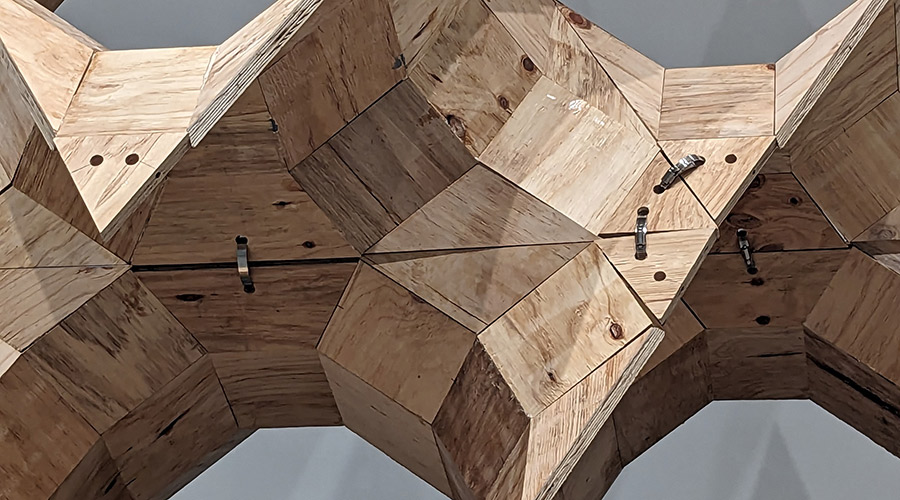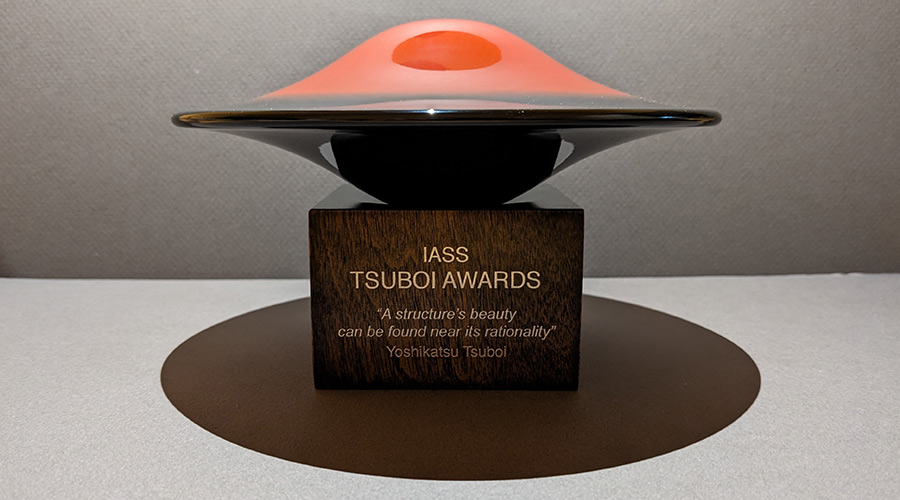The FloaTree pavilion received the first prize in the “Design Competition and Exhibition of Innovative Lightweight Structures 2024”, at the IASS 2024 Symposium in Zurich (ETH).
FloaTree is a system for making artificial habitat structures informed by AI-generated visual abstractions of large old trees. The innovative use of AI-generated visual abstractions as a reference to generate structural systems that mimic the formal complexity and functionality of large old trees represents a significant advancement in ecological design and engineering. Our research translated such AI-generated visual abstractions into tensegrity structures through a parametric design process prioritising modularity, adaptability, ease of assembly, transportability, and sustainable materials. The implications of this project extend beyond its immediate application to arboreal habitats. FloaTree serves as a prototype for how AI and structural design can integrate to address critical ecological challenges, and the ability to translate simple polyline models into structural systems that emulate the evolved forms and functions of tree habitats highlights a novel opportunity for architectural and engineering practices to contribute more actively to environmental sustainability and multispecies cohabitation.
We had an amazing team at the Faculty of Architecture, Building and Planning of The University of Melbourne working on the design and fabrication of this prototypical project: Sofia Colabella, Michael Mack, Michael Minghi Park, Jack Halls, Gabriele Mirra (who will soon join Delft University of Technology), Alex Holland, and Stanislav Roudavski.
Read the paper HERE.





